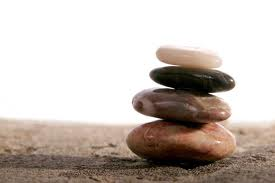 Credit to Kim Garst for image
Credit to Kim Garst for image
I encountered the phrase “all in” in two quite different contexts lately. In the first, a minister used it to describe his faith. In the second, a technology sales executive said it about the way he works. And then in a third instance, Ralph Waldo Emerson (a voice from the past), is quoted using different words but talking about the same idea (thanks to Angel Maiers for her post and the Emerson quote:
"Passion is one of the most powerful engines of success. When you do a thing, do it with all your might. Put your whole soul into it. Stamp it with your own personality. Be active, be energetic and faithful, and you will accomplish your object. Nothing great was ever achieved without passion.”
Put this together with a research finding that most of new hires that fail do so because of attitude, not lack of skills – as much as 80%.
And add in the “personal” in personal branding, which is about your passions, values, and goals. In other words, the things that go to make up your personality.
And you’ve got a little-known but apparently crucial ingredient in on-the-job success.
The Passion thing helps in interviewing too. If you know what you’re passionate about, great! Don’t be afraid to show the energy and excitement you experience in what you do. Even if the intervivewer hasn’t thought about passion as a desirable quality in a new hire, you will radiate energy and enthusiasm and that will engage the interviewer’s interest.
Studies have also shown that there is a kind of mimicry that goes on when two people communicate – that is, your enthusiasm will ignite the interviewer's. And that’s got to help!
Surveys find that by far the biggest element in deciding whether to hire someone is based on how s/he looks and sounds. Both your facial expression and your voice change when expressing passion, and, therefore, you will look and sound even better than you ordinarily do (we hope). :)
If you’re not passionate about your work, here are some thoughts. Passion doesn’t have to be fireworks kind of passion. It can be a firmly grounded commitment. If neither of those is true, see if you can find one aspect of your job that particularly interests you. Ask yourself why. Then ask yourself how your heightened interest impacts outcomes. Then, you can take advantage of the magic of passion, at least in the part of the interview where you give an example from the interesting part of your work.
As the hiring process is increasingly using assessments and simulations in an attempt to be more objective, your passion need not lose its power completely. It may be the single differentiating factor between two otherwise similar candidates. It may, in fact, be the one that will put you over the top!





